May 13, 2022 | Nekategorizirano, News
At the first meeting after the gathering in Slovenia, we were introduced to each other once again, because a lot of new members joined the project, so we spend a lot of time talking about our social values. So we could get to know each other. After that, we had a small talk about the meeting in Slovenia and the fun activities that we participated in. After that, we presented the work we have done in our respective schools. We talked about the government and had a debate about what the government should do about climate change, like restricting the use of plastic bags, straws, and plastic in general. After the meeting, the restrictions were actually implemented by European Union.
We had a separate debate about bottles and other hard plastics. Should we make them thinner and more ECO-friendly? After the conversation EU once again banned all single-use plastic items, if they’re not ECO, but we haven’t talked about it since then. The next point we wanted to touch on, was entertainment. More specifically entertainment in the past and future. We talked about how back in the Rome days, people watched gladiators fight, and now we watch boxing matches, football, baseball … etc. We were trying to guess possible entertainment in the future. We were also thinking about the easiest and minimal changes, that everyone should implement in their life, that can help our society. At the end we set the talking points for the next meeting and finished the Meeting.
Feb 27, 2020 | News
The third day started as well as the other days in the primary school Trnovo, where we all met. As usual, we had activies in the gym and today, Germans prepared some interensting programme for us. We were divided into 10 small groups – mixed groups and we got some specific materials – 5 paper straws, 5 pieces of a tape, a bowl and an egg. We had to cover the egg to be safe. We had 20 minutes for preparation and it was really interesting because every group had different ideas and only three of them were the right ones, the others eggs just smashed. Then we had breakfast, as the previous days, which was really delicious. After that, we were divided into specific groups, one group worked on the website and the other went to the Craft room where they had really absorbing activity. They could make a robot with using of tools and materials from this room and the ideas and products of every one of the students were nice and the most important – they were unique.
-Timea Forraiová
Feb 13, 2020 | News
Grammar school Opatovska cesta 7, Kosice
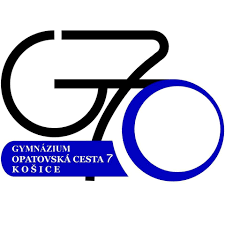
Our school was established as a grammar school on 1.9.1980. It took place in the area of a previous economic high school. The location of the school is in the suburbs of the second largest city in Slovakia – Kosice. The advantage of the location, which is not in the centre of the city is, that our school has its own area with a sportsground. The sportsground is used for many activities, such as competitions and PE lessons. Our school has approximately 400 students who are divided into classrooms according to their specific study plan. Our studends have an opportunity to choose from 4 study plans as – FOUR-YEAR study plan with higher education of English or informatics and science subjects, FIVE-YEAR BILINGUAL study plan with English, or German language, and EIGHT-YEAR study plan which is set for the students who come from the primary school. Because our school is really focused on foreign languages students study Slovak language as their mother tongue, English language as a foreign language and then they also have an opportunity to choose the third one from 3 alternatives – German, Spanish and Russian. In the end of each study plan students have specific tests called MATURITA where they have to show their knowledge from Slovak language, 2 or 3 subjects which they choose by their own and then subjects which are chosen according to the specific study plan. Our school also has its own school canteen, buffet, gym, classrooms which are dedicated to the specific subjects as laboratory of Chemistry, Biology and Physics, classrooms with computers, English laboratory used by students who have English lessons and relaxing room, which is used by students when they have a free lesson. Our school cooperates with several foreign schools and has been engaged in several international projects such as project Erasmus+. Students also have several activities which are considered as traditions for example IMATRIKULACIA – it is like a dance ball, where every first graders have to introduce their own classroom to become members of the school and STUZKOVA which is like a Graduation prom in the last school year. To sum up, our school has big opportunities not only connected with learning and education, but also with funny and cultural experiences.
-Timea Forraiova
Primary school Trnovo, Karunova 14a, Ljubljana
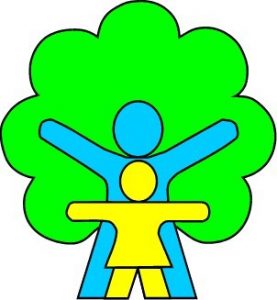
Our school was founded in 1788,but the building that you see today was built almost 200 years later in 1960. In the beginning it had 110 students and since then the number has multiplied by almost 7. Our main values are: kindness, knowledge,responsibility,creativity and safety. We participate in a lot of different projects like: ERASMUS +,*EARN, applause… Our students also participate in a number of different competitions, in a field of sports and science. We take care of our students and make sure they all feel safe and included, that is also the main reason why we started the school friend project which connects first year students with older students. We offer many after school activities such as rhetorics,first aid courses, drama club and an opportunity to participate in the Children’s parliament. They can choose to study foreign languages for example: French,German,Italian,Chinese,Latin and English. To inhance sucess at our school we organize national assesments at the end of ninth and sixth grade. Our social workers are more than happy to provide guidance to students that are in need of any help. We support a healthy nutrition, that is why we provide our students a warm breakfast,lunch and a snack in the morning and afternoon. For younger children the school provides afterclass care until 5 p.m. The inside of the school is full of specialized classrooms like: the computer room, a chemistry lab , an arts and crafts clasroom and more. Every class goes to “camp” to a different location each year for 3 or 5 days where they are engaged in a lot of sports and outdoors activities. At the end of the last grade we organize a Valeta which is similar to Homecoming, where ninth graders remember all the precious moments that they made during their time in primary school Trnovo. The school is happy to give it’s students so much knowledge,happiness and safety.
– Ema Stražišar
Evangelisches Gymnasium Mylau (Futurum Vogtland)
The Futurum is a Protestant school which is an all-day school. It was opened in 2007. The school is part of the Futurum organization. Two primary schools, an old castle and a library belong to the organization too.. In Germany the primary school is from 1st till 4th grade and High school is from 5th till 12th grade. If you are on a “Gymnasium” you can do the “Abitur” and if you do this you can study at a university. Our motto is “main subject: human”. Our school is also open to students with increased and special funding needs . We haven´t got any homework but we have “Learning Time” where we can do our exercises. After our lessons we can take part in school clubs also called “GTA”, for example “Movie”, “Comic” or “Sewing”. Our first lesson on Monday is “start of the week” where we are organizing the week. In the last lesson on Friday we evaluate the week. At our school we have a very special project “Theatre”, which do our German teacher. Every 8th grade prepares its own play where we address current social issues. In Germany every school has a class council. At the class council every class speaker brings suggestions to improve the school. Also if you have a problem you can talk to the class speaker. Our school hasn´t got a profile, because everyone can find his own way. On our school are seventeen teachers and nine assistents.
Together we´re better!
-Franzi and Marlene
Mazorníkovo elementary school
Mazorníkovo elementary school was established as elementary school in september 1990. Our school has 270 students, 23 classes such as laboratory, language class,English class,library and 25 teachers. School is member of international project Erasmus+ called Happy Society. School prepares a lot of events like traditional X-mas shops and Halooween with positive reactions.
Main goal of our school is to prepare students for effective using of knowledge in their next study and practical life. Students have an opportunity to engage in competitions. To reach the goal teachers use interesting learning methods which develope creative thinking and self-rating.
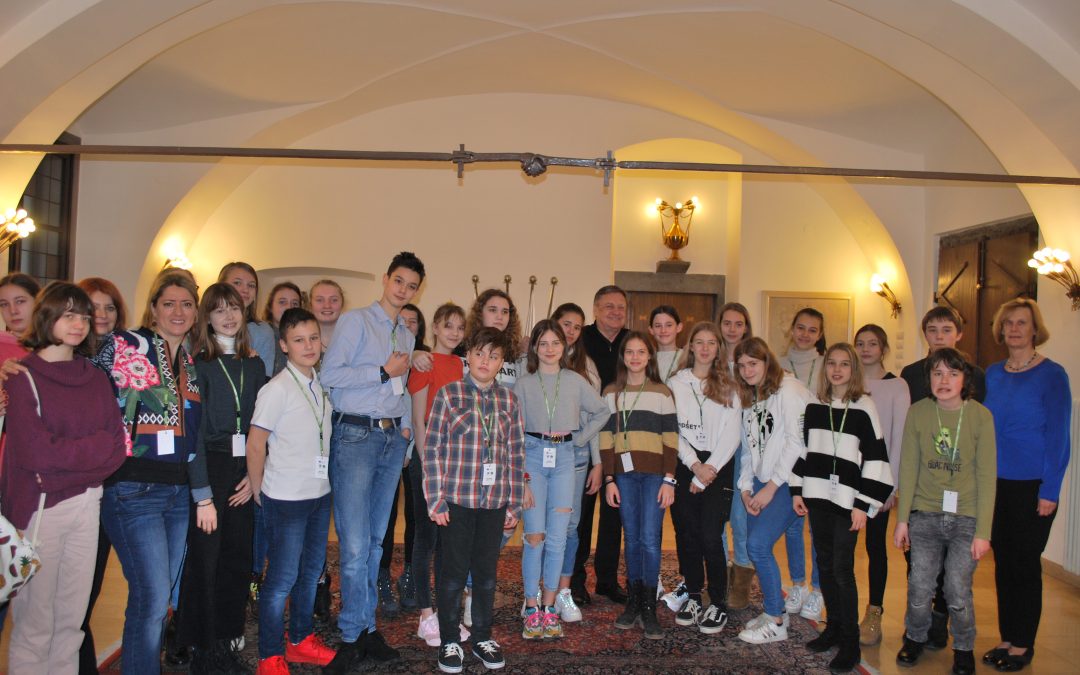
Feb 13, 2020 | News
Wednesday,12. 2. 2020
We started the day with a Belgian dance. After the morning recreation we went to the town hall where the mayor himself accepted us with pastries, fruit and drinks. He had a speech and he answered our questions. Then we took a group photo with him and said goodbye.
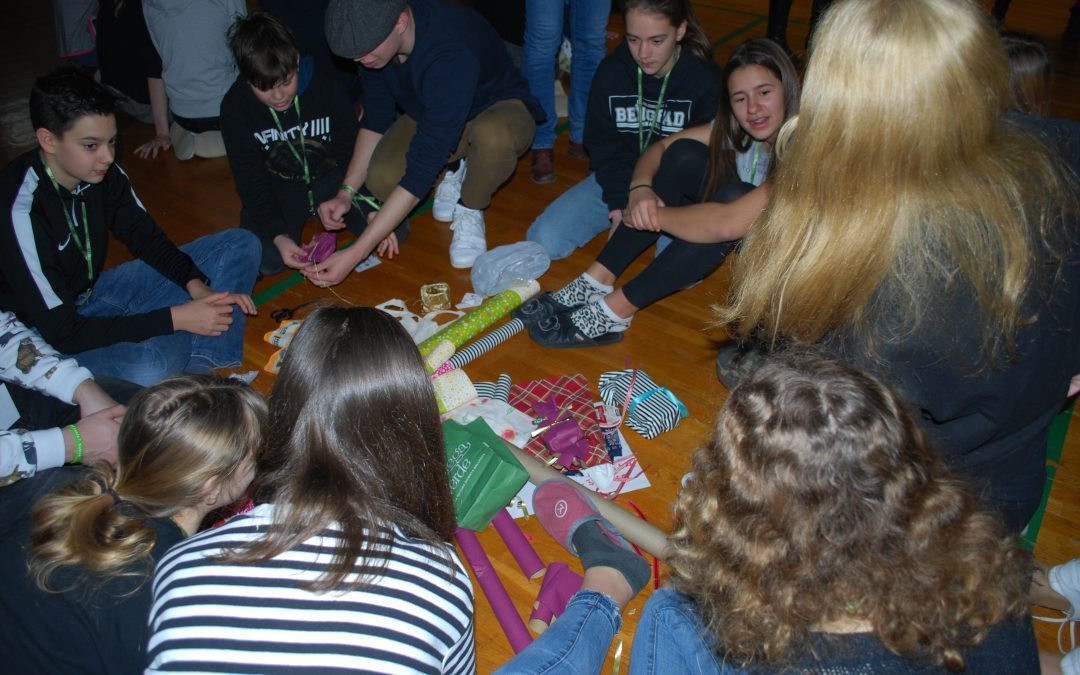
Feb 12, 2020 | News
We had a lot of programs at the school. Greeted for the firts time. The school is very beautiful! Then we played a social games. We ate sandwiches at 10.30. And they presented the school. And than we sat in groups and we discussed that what the common ones in the countries. Of course we are shown to the other children. After that we had a snack again. The Slovenian kids taught us the slovenian language. We had a delicius lunch at 13.55. After the lunch we evulates the day. And finally everyone went home about at half past two.
Biborka Lehel
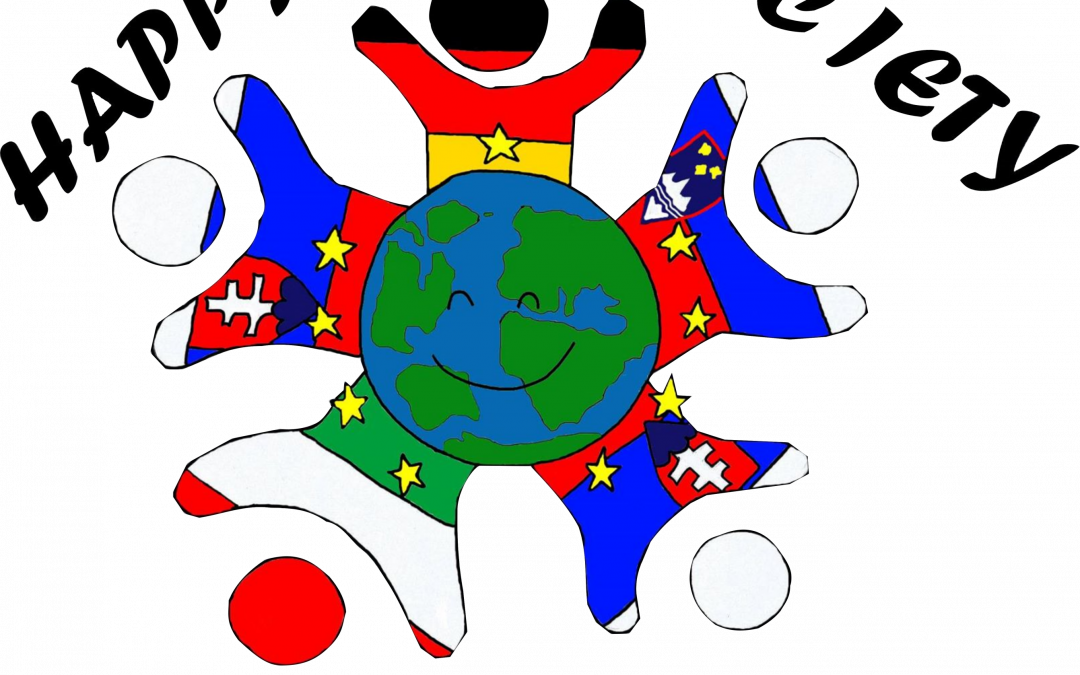
Feb 11, 2020 | News
 The first task for the project was to create an official logo representing the main topic,each country included in the project and the project itself. Each school made several drafts and then rated each one from 1 to 10. Winning logo was made by student from Kosice, Slovakia. It symbolizes happiness and the whole society on Earth. The stars around the Earth represent the European Union and figures dressed in colours of countries represent the specific country.
The first task for the project was to create an official logo representing the main topic,each country included in the project and the project itself. Each school made several drafts and then rated each one from 1 to 10. Winning logo was made by student from Kosice, Slovakia. It symbolizes happiness and the whole society on Earth. The stars around the Earth represent the European Union and figures dressed in colours of countries represent the specific country.
-Timea Forraiova & Ema Stražišar







































































 The first task for the project was to create an official logo representing the main topic,each country included in the project and the project itself. Each school made several drafts and then rated each one from 1 to 10. Winning logo was made by student from Kosice, Slovakia. It symbolizes happiness and the whole society on Earth. The stars around the Earth represent the European Union and figures dressed in colours of countries represent the specific country.
The first task for the project was to create an official logo representing the main topic,each country included in the project and the project itself. Each school made several drafts and then rated each one from 1 to 10. Winning logo was made by student from Kosice, Slovakia. It symbolizes happiness and the whole society on Earth. The stars around the Earth represent the European Union and figures dressed in colours of countries represent the specific country.












